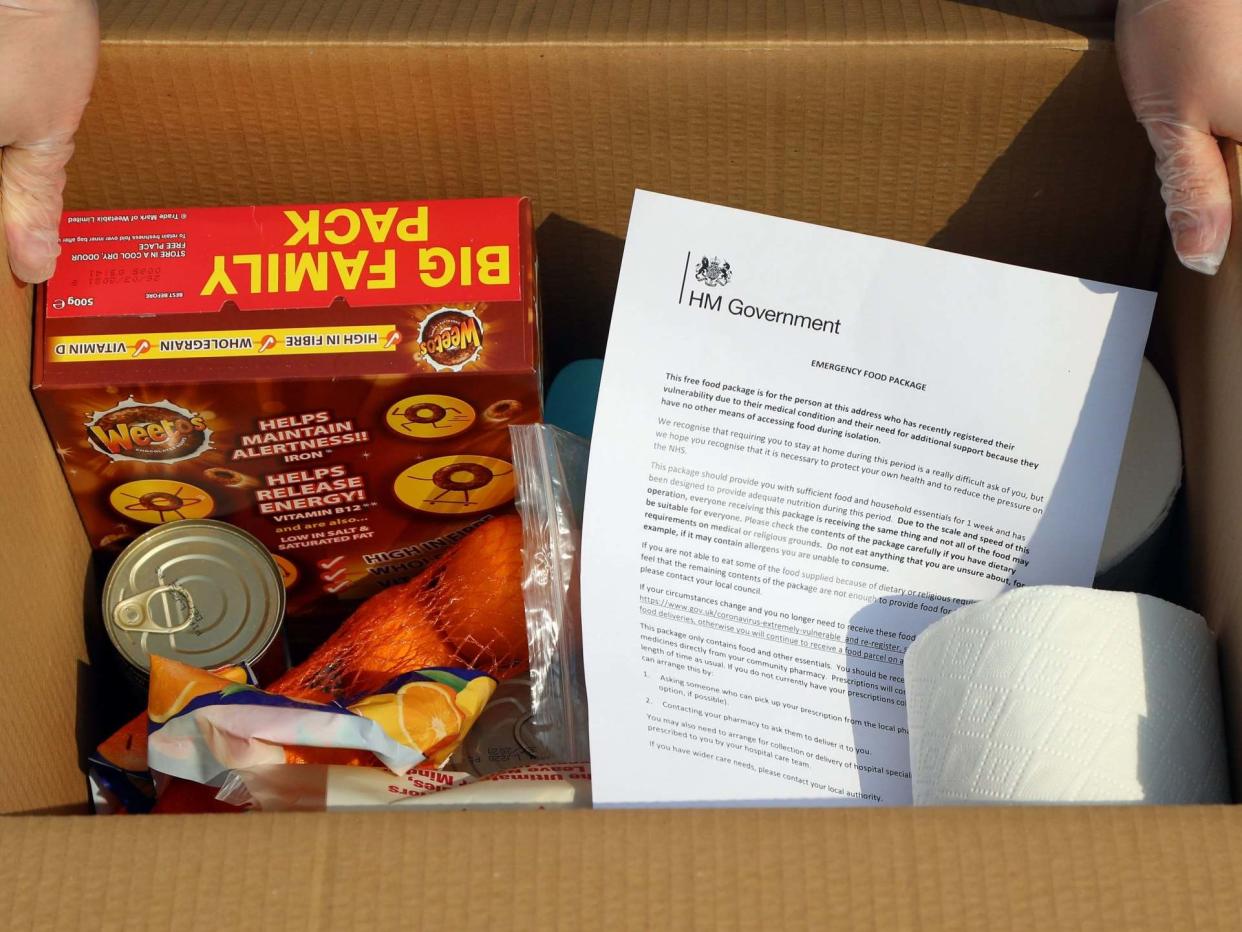Coronavirus: First food parcels delivered to vulnerable people in self-isolation in government ‘shielding’ operation

Thousands of people deemed the most vulnerable to coronavirus have begun receiving free food parcels as part of the government’s “social shielding“ strategy.
The first consignment of 2,000 boxes containing pasta, cereal, fruit, tea bags and toilet roll were left on doorsteps to help those who cannot leave their homes.
Another 50,000 are expected to go out over the next seven days and officials say they could ramp it up to hundreds of thousands per week if required.
Up to 1.5m people across the UK are being asked to “shield” themselves from contact with other people because severe health conditions such as leukaemia, cystic fibrosis and kidney disease put them at higher risk.
The packages are targeted at those who have no support network of family or friends to help them get supplies during the 12-week isolation period.
Communities secretary Robert Jenrick MP claimed it was ”the scale of an operation that has not been seen since the Second World War”.
“This weekend sees the start of extraordinary steps to support the most clinically vulnerable, while they shield from coronavirus,” added Mr Jenrick, who took part in a photocall during a delivery of boxes in Tonbridge, Kent, on Saturday.
“We will support these people at this difficult time. This is an unprecedented package of support and I want to thank the food suppliers, local councils and everyone who has come together to create this essential service in just a matter of days.”
The government said it had sent letters to 900,000 vulnerable people about the shielding policy, but admitted another 600,000 are not on a national register and will have to be informed by their GPs.
Deliveries of groceries and essential household items are being coordinated by food distributors, supermarkets, local government and voluntary groups. Medicines will be also delivered by community pharmacies.
Andrew Selley and Hugo Mahoney, the chief executives of the UK’s two largest food distributors Bidfood and Brakes, said they were “proud to join forces and play such a vital role in supporting people in need during their period of isolation”.
However, there are concerns that a surge in demand for food and household items during the pandemic could leave the poorest in society to go hungry.
Food banks have struggled to meet demand for emergency supply parcels at a time when the number of available volunteers has reduced.

 Yahoo News
Yahoo News 
